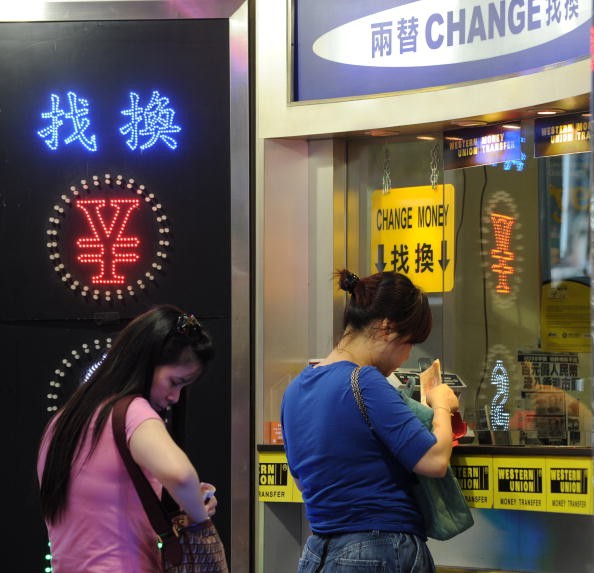China's foreign exchange reserves are "still the highest in the world, although slightly below the scale of three trillion U.S. dollars," the State Administration of Foreign Exchange (SAFE) said on its website.
According to SAFE, the decline in forex in January was smaller, compared to the $41 billion in December and the drop of $70 billion in November.
On Tuesday, Feb. 7, China's central bank announced that the country's foreign exchange reserves have dropped below $3 trillion for the first time in six years, Channel News Asia reported.
The decline came amid efforts by monetary authorities to curb capital flight from out of the country. The weakening of the yuan and the slowing of the economy have driven investors to take a huge amount of money overseas for better returns.
However, the efforts of authorities prevent capital outflows by keeping the yuan afloat have drained the country's reserves, the report said.
In addition, China may face added pressure as the dollar could strengthen if U.S. President Donald Trump pushes with his protectionist policies to rekindle growth in the U.S. economy.
"With Chinese FX reserves having dropped below the psychologically important threshold of $3 trillion, this will further ramp up the pressure on Chinese policymakers," Rajiv Biswas of IHS Global Insight said in a note.
Data from the People's Bank of China showed that the country's foreign exchange reserves dropped $12.3 billion to $2.998 trillion in January.
Economists surveyed by Bloomberg said that the decline was larger than expected as it reached nearly a trillion dollars from its peak in June 2014.
"This decline will likely spark renewed debate over how long the People's Bank (PBOC) can continue intervening to support the renminbi," Julian Evans-Pritchard of Capital Economics said in a note.
China has also moved to reduce capital outflow by tightening the requirements for citizens who move or transfer money out of the country, which is also part of efforts to slow the yuan's decline.
But "as the pressure for financial outflows is likely to remain high, existing policies may not be enough," Louis Kuijs of Oxford Economics noted, adding that the country's policymakers may have to implement "more forceful steps" such as "formally re-imposing restrictions on outflows."


